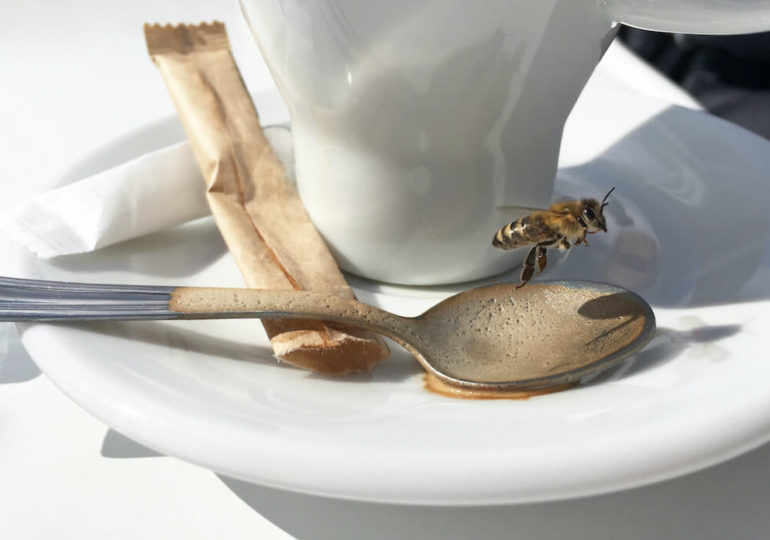 Véto-pharma
Véto-pharma Honey bees (Apis mellifera) play a vital role in pollination and are crucial for maintaining ecosystem biodiversity and agricultural productivity. However, honey bee populations worldwide have been facing numerous challenges, including the impact of bacterial pathogens. In a recent study, published in an esteemed scientific journal, researchers investigated the influence of caffeine consumption on honey bees’ defense mechanisms against a common bacterial pathogen, Serratia marcescens. Here, we summarize the main findings of the authors,

In the present study, researchers investigated the impact of caffeine, a naturally occurring compound present in nectar and pollen, on honey bee immunity. To explore this relationship, researchers conducted experiments where bees were provided with a sugar solution supplemented with caffeine. The results revealed that bees consuming caffeine exhibited enhanced immune responses compared to those without caffeine. These findings highlight the positive influence of caffeine consumption on honey bee immune responses, suggesting potential benefits in strengthening their defense mechanisms against bacterial pathogens.
Delving deeper into the mechanisms behind caffeine’s protective effects, the researchers discovered that caffeine consumption activated specific immune pathways within the honey bee organism. These pathways, involving key genes and proteins, facilitated an increased immune response against the bacterial pathogen. Moreover, caffeine consumption influenced the expression of antimicrobial peptides, which are essential components of the bees’ immune system. These findings suggest that caffeine acts as a natural stimulant, boosting the bees’ immune system and aiding in the defense against bacterial infections.
The study’s findings have significant implications for honey bee health and colony survival. The ability of caffeine to enhance honey bees’ immune responses against bacterial pathogens suggests a potential strategy to mitigate the negative impacts of infections within bee populations (such as American and European Foulbrood, Deformed Wing virus, and so on). Given the critical role of honey bees in pollination and functioning ecosystems, maintaining healthy honey bee colonies is of utmost importance. Understanding the positive effects of caffeine on honey bee immunity may contribute to the development of novel approaches to protect bees from diseases, ultimately benefiting both beekeepers and agricultural systems reliant on pollination services.
In summary, the study highlights the positive impact of caffeine consumption on honey bees’ defense mechanisms against a bacterial pathogen. Caffeine enhances honey bee immune responses, activating specific pathways and influencing the expression of antimicrobial peptides. These findings offer valuable insights into potential strategies for improving honey bee health and combating bacterial infections. Continued research in this field may lead to the development of innovative interventions aimed at safeguarding honey bee populations and preserving their critical ecological role.